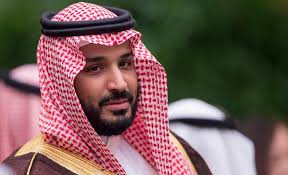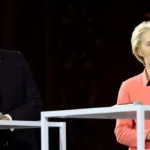
Is Mohammad bin Salman the new messiah of Arabia? By Freddy Eytan
For now, Prince Mohamed ben Salman (MBS) is only the heir to the Saudi Kingdom, but his many activities bear witness to the megalomania of his revolutionary projects in an archaic Muslim world, torn between Sunnis and Shiites, moderates and fanatics. , in this Wahhabi country where the most dangerous terrorist on the planet grew up: Bin Laden. Who would have imagined such a rapid historical turn in Arabia? Was MBS inspired by the Seven Pillars of Wisdom? Is he capable of completely changing the geopolitical deal in the Middle East? Charming, darling of the media and social networks, MBS travels the globe and negotiates with all the majors on the planet. On the agenda: arms purchases, investments, mediation, and the wish for a tolerant and moderate Islam. We appreciate its openness to the world, the encouragement of non-religious tourism with the construction of a new modern city on the shores of the Red Sea; we listen to his projects for the equality of women, particularly in military positions. He even offered them a driver’s license…
MBS has become a global diplomacy superstar. With ideas and oil in abundance, even the sky has no limits for him. His extravagant ambitions are notably in the conquest of nuclear power and space. He wishes to represent a regional power and transform his gigantic desert country into a flourishing oasis, an international center for peace and coexistence between the three monotheistic religions.
Mohamed ben Salman is celebrating his 37th birthday these days and the future is ahead of him. At the age of 29, he was already appointed Minister of Defense and now his gray areas suddenly appeared. In front of a sick old father, he rules his country with an iron fist. From the start, he carried out a fierce repression: hundreds of arbitrary arrests, an unprecedented purge within the royal palace and against all opponents. He is even implicated in the assassination of a Saudi-American journalist in Istanbul and tangles with Washington. His relations with the Biden administration, touchy on human rights, are deteriorating and he no longer gets his arms orders to be able to face Iranian threats and win his ruthless war in Yemen. He finally gave in, accepted a truce through Chinese mediation, and renewed diplomatic relations with Iran, his implacable enemy.
However, MBS understands very quickly that normalization with the Iranians separates him from the United States and Israel and causes him serious problems with the Sunni countries at the very moment when the ayatollahs prepare their own atomic bomb and threaten the whole region. The rapprochement of the ayatollahs also cools his relations with all the emirates of the Persian Gulf and particularly with his rival Mohamed ben Zayed (MBZ). They blame him for abandoning the Western side as Tehran aligns itself with the Russians and Chinese in the war in Ukraine. It was then that he changed course and organized an international conference in Jeddah to find a peaceful solution to Russian aggression. It will be noted that its foreign policy zigzags, is volatile and often thoughtless. Prudence and vigilance oblige to follow its great steps in all directions.
Already in 2018, MBS had appreciated a rapprochement with the Jewish state. Donald Trump’s visit to Riyadh and the Abraham Accords had encouraged him to normalize in stages with Israel. Since then, all the speculations and opportunities have been in the air and with them the signing of fabulous commercial contracts in a new Middle East that has finally become peaceful.
After the normalization signed with the Gulf Emirates can we really believe it? These days we are celebrating the centenary of the birth of Shimon Peres who dreamed of a new Middle East after the signing of the Oslo Accords. He fooled us with illusions. In too much of a hurry, seeking a quick treaty, glory and the Nobel, Peres was too far ahead of his time. He trusted Yasser Arafat dangerously. However, thirty years after the fiasco of the Oslo Accords, a commercial and strategic agreement with Saudi Arabia is hardly a utopia since more than a million Israeli tourists have been able to see with their own eyes that the dream can become a beautiful reality in this peninsula and for the whole region.
Is Benjamin Netanyahu capable of taking up the challenge? His multiple appearances on American channels sometimes leave us doubtful, but no one doubts that we must continue our efforts to achieve normalization with MBS in our bilateral and regional relations. Mohamed bin Salman could be a credible partner if we offer him a bold and pragmatic plan. The weather is favorable for all parties. Washington would strengthen its position in the region to the detriment of Iran and China.
The USA-Arabia-Israel tripartite order would facilitate aid to the Palestinians, would strengthen Egypt and Jordan, but also Lebanon, which wishes to put an end to the crisis and loosen the grip of Hezbollah. The Saudis will benefit from a mutual defense agreement with the United States, will obtain new technologies and a civilian nuclear program. Of course, with solid guarantees against atomic proliferation in our region and the refusal to offer the Saudis more sophisticated armament than that possessed by Israel. The qualitative superiority of weapons is a sine qua non for the Tsahal.
The eventual agreement with MBS will give a second wind to the regional and global economy. Israel will benefit greatly from it in all respects and fields. The opportunities exist, but everything will depend on Saudi goodwill and above all on Netanyahu’s leadership and his ability to appease people’s minds inside the country.
This article is originally published on





